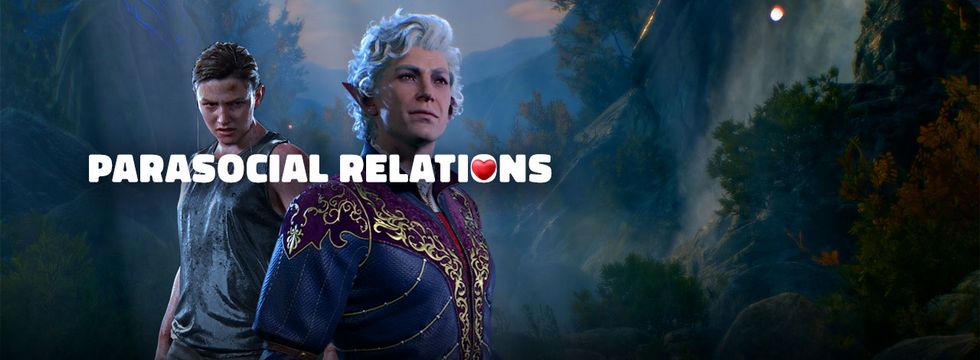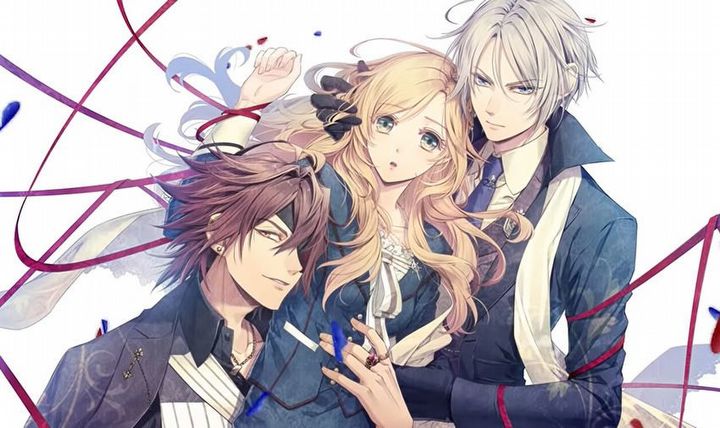author: Caroline Cieslak
In Love With Video Game Character? Chill. Here's How Parasocial Relationships Work
We are social creatures. We need contact with other people. But is interacting with flesh-and-blood humans the only way to satisfy these social needs? If you think so, let me tell you about parasocial relationships (we're not getting dystopian though!).
Whoever has never felt affection for a fictional character, let them cast the first stone. I wouldn't even think about casting it because a man who doesn't exist in reality made my heart beat harder for the first time. I felt strange about that, because it seemed inappropriate – to fall for someone virtual. It was only years later that I learned that there was nothing wrong with it. As it turns out, this is a completely normal thing associated with a phenomenon called parasocial relationships.
You don't know me, but I know you
Parasocial relationships are one-sided relationships with people we can't really meet. As we continue to observe our favorite internet creators, we find ourselves learning more and more about them, gaining insight into their opinions, thoughts, and emotions. We notice their habits, we become accustomed to their appearance. It's similar with celebs. Not only do we watch them on the silver screen; we can also get to know them through interviews on social media. They don't know us, most likely they don't even know about our existence. However, we feel like we know them so well.
In the past, the concept of parasocial relationships was mainly discussed in the context of existing people. However, it has been observed that it applies to characters from books, movies, or games as well (even though we have never met them, we can still feel a certain connection with them). The games are most interesting in this respect. Studies have confirmed that the video games show a considerably higher potential for forming parasocial relationships than any other media. Also, these relationships, for many reasons, function at a somewhat deeper level.
I, the protagonist
The video game is the most interactive medium of all. As recipients, we not only observe the development of events, but also actively participate in them. A multitude of studies have shown that players identify with game protagonists much more strongly than with characters from books, movies, or TV series. It can be said that during the gameplay, there's a process of dissolving the boundaries of one's identity. We stop being solely ourselves and start identifying with the thoughts and feelings of the character we control. This is particularly effective in the case of non-linear games, where we, the players, make the key decisions. These decisions often shape the personality and interpersonal relationships of our protagonist. This was the case, for instance, with Connor from Detroit: Become Human, whose fate could have turned out completely differently depending on our choices.
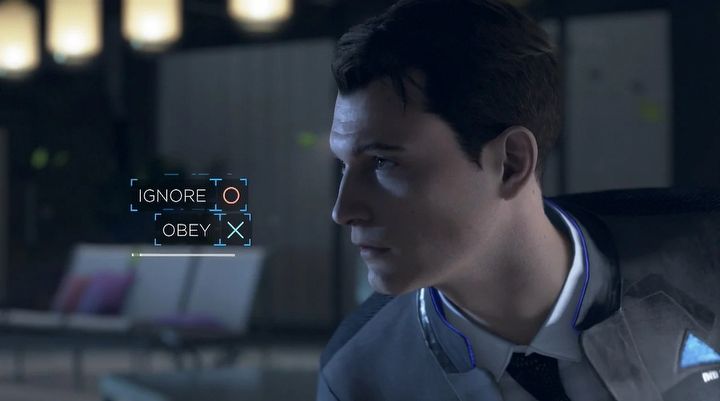
Connor is a character whose personality we can freely shape. Detroit: Become Human, Sony Interactive Entertainment, 2019
The journey that we take with the game's protagonist usually lasts quite long, at least several hours. So, we have time to get attached to a particular character. Research has shown a clear correlation between playtime and the level of bonding with the character. Moreover, experiencing events together with them gives the illusion of sharing a common history, which further strengthens this one-sided bond. This refers not only to the protagonists, but also to non-playable characters.
If I had to say what I value most in life, I'd say other people
You've probably heard more than once someone say "they don't like people." That they annoy or bother them and they prefers to stay away from others. It's possible such a statement is proceeded by another one –"I'm an introvert." Introversion, contrary to popular understanding, doesn't mean aversion to people. A highly introverted person is simply very sensitive to stimuli and will endure less of it before getting fed up. That's why they may leave a party earlier, prefer shorter conversations, or spend their free time alone.
Because yes, people can be tiresome. However, this doesn't change the fact that each of us, even an extreme introvert, has social needs that, if unmet, can significantly worsen well-being and quality of life.
We live in a society and we need shared bonds and contact with others. We crave intimacy, acceptance, the exchange of thoughts, spending time together, physical contact are all very useful for well being. However, meeting social expectations isn't easy (we might argue it's even useless). Prosaic but often difficult obstacles can get in the way. This can be, for instance, shyness, said introversion, unpleasant experiences from the past, and also... lack of people in our environment with whom we would be on the same page and whose company we would enjoy.
Most of us, at some point in our lives, have experienced such difficulties. So, what if I tell you that social needs can be met in a different, much less invasive way?
Go outside
If you ever stayed up all night playing games as a teenager, you probably know that such activity could come with a DLC: a lecture from parents. It usually sounds something like this: "Turn that console off and go outside, you'll go mad in front of that screen."
Psychologists and other researchers rush to the rescue of oppressed players here, presenting the results of studies on parasocial relationships. It turns out that parasocial relationships can serve as substitutes satisfying the need for human contact and can serve as a healthy extension and complement to regular social interactions.
Scientists have discovered that...
One research revealed a number of interesting correlations. Players who can follow the fate of imaginary characters and learn about their emotions experience feelings similar to what we usually feel when a friend confides in us. The human mind and body respond to favorite fictional characters in a very similar way to how they respond to an actual friend or a loved animal.
In case of games, in which, as the protagonist, we establish relationships with independent characters (vide Dragon Age, The Witcher, Baldur's Gate), we can obtain a valid simulation of building interpersonal bonds – whether friendly or romantic. We don't passively observe the development of relationships – we actually guide them onto specific tracks by taking appropriate actions (sometimes very trivial, such as giving a chosen character a gift). And what adds even more appeal to the entire process is that, in comparison to real life, it proves to be relatively effortless.
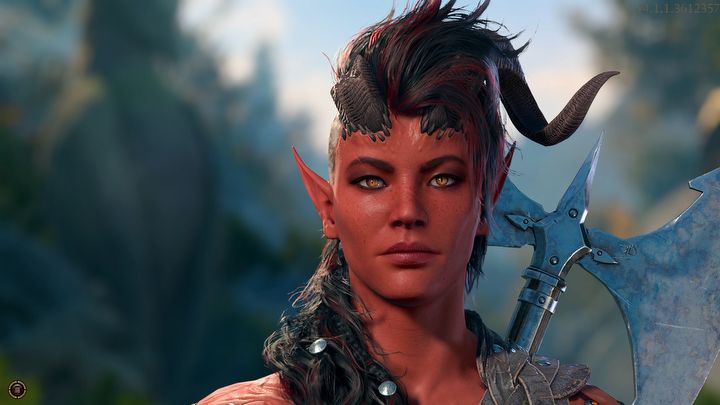
Karlach is one of the most beloved characters in Baldur's Gate 3. Baldur's Gate 3, Larian Studios, 2023
Tinder at home
Striving to establish a close relationship is a natural need for many people. And while such relationships bring a lot of positive outcomes, they are also accompanied by a number of stressors.
After all, the person we choose may reject us, which could result in lowered self-esteem. Our contribution to the relationship may feel greater than the other person's, which often causes frustration. On the other hand, a sudden breakup affects us in the same way as drug withdrawal.
These are just the first of the dangers concerning the actual relationship between two people. So, it's no wonder that many people satisfy the need to establish romantic relationships through video games.
Research has shown that it's possible to become captivated by a fictional character and even fall in love with them. This is accompanied by a mechanism of gratification very akin to that resulting from a real relationship. Moreover, it turns out that if we consider a given character as a candidate for a potential partner, the commitment and emotional intensity in such a relationship are greater than in the case of parasocial relationships without romantic nature.
Stepping into a virtual, parasocial relationship with a game character can seem appealing, especially to people who are shy, have low self-esteem, or poor social skills. This explains the popularity of so-called dating simulators, in which the gameplay mainly involves forming romantic relationships with non-playable characters. They are especially popular among female college-age players, for whom – as research has shown – a large amount of time spent on this type of entertainment correlates with idealized beliefs about love.
Games with romantic elements can thus function as simplified Tinder. We can choose from a variety of visually appealing and/or personality-driven characters, from which we can select the one we like the most. The risk of rejection is minimal here. Usually, you have to try very hard to scare off a fictional partner. We can, therefore, experience the emotions associated with a romantic relationship in relatively safe conditions – without stress, without lowered self-esteem, and without having to make any sacrifices. The pixels on the screen won't get offended if we forget their birthday or don't take them on a date.
Tere's a fine line between love and hate
In the real world, not all relationships are successful and fulfilling. This is similar in the case of parasocial relationships. In games, we encounter characters whom we may dislike or even hate, despise, and feel anger toward when we see them.
These relationships match the intensity of those that are more engaging. And paradoxically – also having many positive social effects.
Negative emotions, such as anger, can be strong motivating factors. Let's recall how much hatred the community felt when Abby appeared in The Last of Us II (statistics show that she is one of the most hated game characters, right next to Micah Bell from Red Dead Redemption II). For many fans of the series, Abby has become a nemesis – after all, nothing unites people as strongly as a common enemy. Discussions with others about what we don't like can bond us just as much, if not more, than conversations about what we do like.
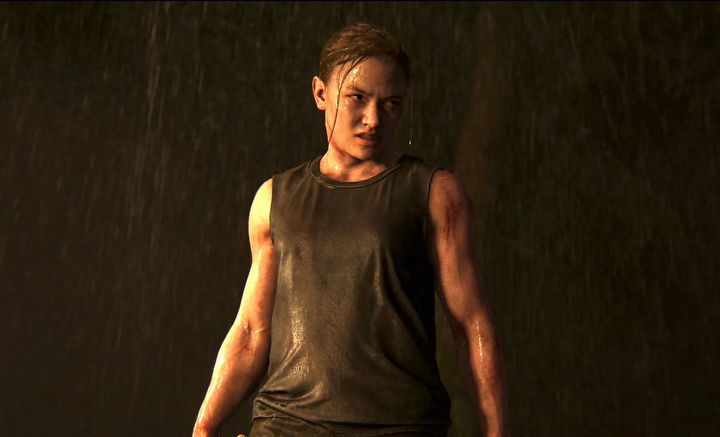
Abby has stirred up controversy. Some players instantly hated her – probably because of the strong parasocial relationship they had previously established with Joel and Ellie. Others, however, felt that her motivation was understandable The Last of Us: Part II, Sony Interactive Entertainment, 2020
I could write a separate essays on one of my most disliked characters, Chloe Price from Life is Strange. I have also participated in numerous discussions about her, both with people who agreed with me and those who held a different opinion. My parasocial relationship with this character is strong, much stronger than with the main protagonist, despite (or maybe because) she is a bad person.
"Hateful" parasocial relationships in games also have another advantage. Sometimes, we can just lace into characters we don't like, thanks to the fact that, as players we have some power over the depicted world. For instance, if he's an antagonist, we can thwart his plans or fight against him. If it's an annoying companion in Dragon Age, we can kick him out of the party. And if it is a character like Chloe Price, we can make all the decisions against her.
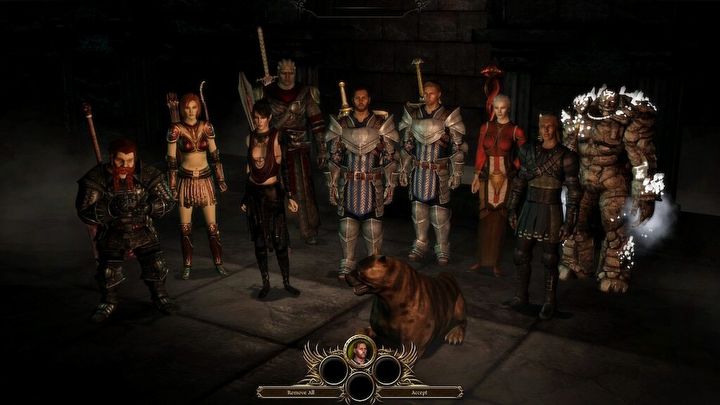
If a hero in Dragon Age gets on your nerves, you can kick him out of your party. Dragon Age: Origins, EA, 2009
Are people replaceable?
As you probably guessed, parasocial relationships aren't a wonderful cure for loneliness. Contrary to the popular saying, people are irreplaceable, and no amount of feelings towards a fictional character will completely satisfy social needs.
Indeed, during challenging moments in life or when external circumstances prevent us from connecting with others in person (such as the pandemic), cultivating parasocial relationships can be advantageous and provide a temporary boost to our morale. However, this won't replace a relationship with a real person, with whom interactions don't take place in the virtual reality. Only real connections can fully satisfy natural social needs. Even though they often involve risks, they offer benefits that we cannot get anywhere else, such as genuine intimacy, understanding, or the exchange of thoughts that stimulate personal development.
You've surely heard before that love is just chemistry. It's certainly much more complex than that, but it cannot be denied that a variety of specific reactions occur in our brains when we meet an LI. Hormones are involved, primarily oxytocin, vasopressin, dopamine, and phenylethylamine.
It's worth mentioning that everything starts with the sense of smell, specifically – with pheromones hidden in a person's natural scent. Such an aroma reaches the olfactory cells, which activates the hypothalamus. When we feel "love" – we start to become interested in a potential partner, which is confirmed by the glowing nerve cells visible during positron emission tomography. Fictional characters don't have physical bodies, nor do they have a smell. By its very nature, "parasocial love" will never be equal to real one, even at the basic, chemical level.
Despite this, it's worth being aware of the positives resulting from parasocial relationships, as well as the potential that games have in the context of forming genuine relationships – whether with players with whom we engage in multiplayer games or with people with whom we can collectively dislike a particular game character.
